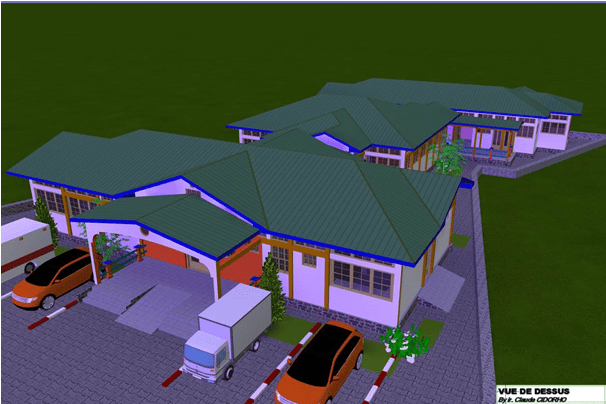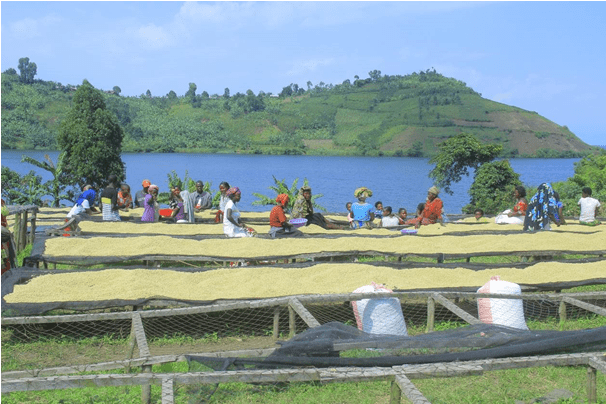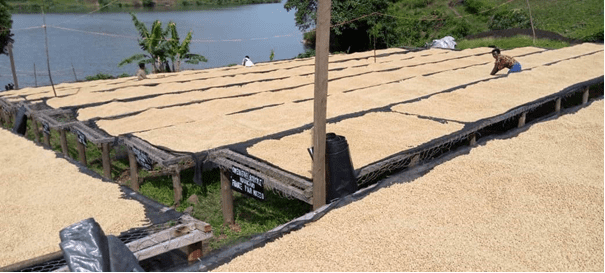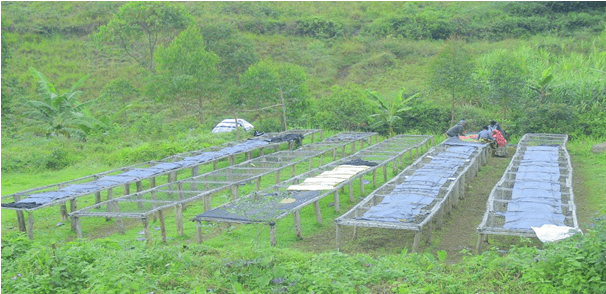October is Fair Trade Month, so we caught up via email and WhatsApp with Daniel Habamungu Chinyabuguma, General Manager of Cooperative Agricole Muungano ("Muungano") in DR Congo. Atlas has purchased Kivu 3 (fully washed) from Muungano since 2013. For more background information on Muungano, please refer to this post about their harvest or their traceable page.
Susan: Hi, Daniel! Can you provide any general Muungano updates over the past year? How are producers faring post volcano eruption?
Daniel: Producers are doing well despite the economy, which has suffered a decline following COVID-19. Regarding the volcano, our members were not completely affected, because they are a little far from the city of Goma. But our coffee sorters [many of whom lived north of Goma in the lava path] were badly affected. The situation has improved, so our sorters are doing better.
S: Do you have any updates on Muungano's washing stations?
D: Our fourth main washing station is called Nyangoma, and it is a large station located on the shores of Lake Kivu. It was built thanks to Fairtrade premiums and contributions from British roaster Mozzo coffee, who contributed funds for ten drying tables. The American organization USADF (US African Development Foundation) also supported us with 20 drying tables, four fermentation tanks, a store/warehouse using sustainable materials, a water tank, and a PENAGOS eco-pulper. Nyangoma washing station is our biggest washing station of the four main washing stations.
Using Fairtrade premiums, we have also built a micro-station in Bishange in the Kabalekasha sector with 20 drying tables and another micro-station in Karango with ten drying tables.
S: What have been some of the biggest challenges and successes Muungano has experienced this past harvest?
D: In terms of success for the last year, we have not had success following COVID-19; we have more challenges: loss of the coffee markets in Europe, and our members lost a lot of their savings because it was about staying at home. The price of coffee, especially the K4 (farmer-washed coffee), significantly lowered.
The high New York market impacted some contracts such as those from ATLAS K3 (fully-washed). We had a difference in price for Atlas contracts (higher market, so Atlas paid a higher price to Muungano). So for the Cooperative, it is a great joy because it will contribute to the construction of a Medical Clinic. For the other contracts, this was not the case. The opposite is true for K4 (farmer-washed) coffee contracts.
S: What is the cooperative looking forward to this coming harvest? How can your importer and roaster partners support you in those goals?
D: The Cooperative expects to produce a better quality of coffee in 2022 when we finally get to work to satisfy our buyers and roasters. Thanks to the various washing stations that we have at the moment, we will do our best to increase the quality of our coffee. But also, we will continue to educate our members to practice agroecology.
What roasters and importers can do to achieve this goal is to increase the quantity of coffee purchased for the year 2022, finally to allow us to continue to invest in the quality of coffee, but also to help us with a the cost of cement to construct the Medical Clinic of Muungano so that the members, especially women, can feel relieved.
S: How is climate change impacting Muungano? Is there anything members have been able to do to mitigate those impacts?
D: In our region, there is a great climate change; everything is disrupted for the moment. Muungano contributes and fights against climate change because, per year, we plant more than 100,000 shade trees and others. This is supported by Oxfam and also Counter Culture Coffee. Our agronomists also teach the members of Muungano how they have to fight against climate change and how to protect the environment.
S: October is Fair Trade Month, and we are thankful to highlight the work of our Fair Trade partners such as Muungano. When did Muungano get Fair Trade certified, and what are some of the impacts you have seen due to Fair Trade certification?
D: Muungano obtained the Fairtrade certification in 2014. Regarding the impact of this certificate, we say that the strength that Muungano has today is thanks to the fairtrade certificate. At the community level, Muungano's fairtrade certification has already supported the construction of schools, health centers, bridges, construction of a hydro-power station for the current. In addition, we have built our washing stations; we bought a dump truck that transports the cherries, some Muungano agents are paid, and the medical clinic will be built thanks to the fairtrade certificate.
The medical and maternal clinic will be community-based, but the members of Muungano will have the advantage of paying 50% of the bill, and they will also be able to pay for the cherries during the coffee harvest. We cannot quote everything here. In short, the impact (of Fair Trade) is very positive.

Schematic of Proposed Medical and Maternal Clinic. Photo used with permission and courtesy of Muungano Cooperative.
S: Is there anything else you'd like to share with me that wasn't asked above?
D: An additional piece of information is that we would like to build a dry-mill plant in the years to come, finally to allow Muungano to make exports but also to have at least two to three sorting warehouses because soring warehouses are rare in Goma (where our coffee is milled) aside from the NGOs and traders that occupy them. But also this will increase the profit for Muungano and its members.
Additionally, in five years, all members of Muungano will be trained in sustainable agriculture, therefore applying agroecology in their fields. In five years, we would also like to have at least 20% of the members to be under 25 years old.
S: Thank you for your time and responses, Daniel, and for sharing the considerable challenges and aspirations of Muungano.
(Note: Responses have been translated from French and edited for length and clarity.)


